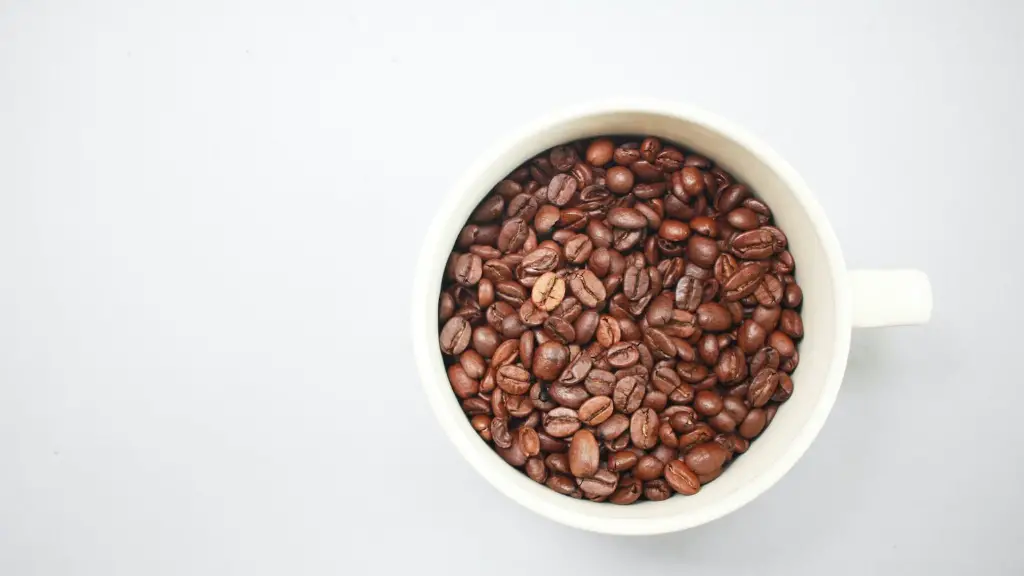How does Coffee interact with Milk during Intermittent Fasting?
Intermittent fasting is a type of dietary regime which typically involves cycles of fasting and eating. It has been a popular health trend for some time now, due to it being reported as having potential weight loss, health and longevity benefits. This diet pattern has been studied widely, and the results are inconclusive when it comes to how coffee and dairy products interact during intermittent fasting.
When it comes to caffeine, consumed in coffee, most experts agree that it is not considered breaking the fast. The reason being that the body does not process any energy from caffeine. Similarly, most experts generally agree that dairy-based products such as milk and cream are considered breaking the fast. This is because dairy-based products can cause an insulin spike, stimulating the body to begin digesting and storing energy. This is contrary to the objective of intermittent fasting.
As well as drinking black coffee during intermittent fasting, some people turn to flavored, store-bought coffees in order to increase their variety. Typically, these coffees will contain sugar, fat and dairy, which can all interfere with the process of intermittent fasting. In addition, the caffeine content can dramatically increase when consuming these coffees, leading to unwanted side effects such as nausea and jitters.
A lot of people also add dairy products to their coffee, such as milk or cream in their coffee, which can influence the way we metabolize meals, or break a fast. Generally, when added to coffee, milk and cream can cause a glucose spike, which breaks the intermittent fasting cycle and encourages fat storage. Due to this, the body can be thrown off balance in terms of the cycle of fasting and eating.
Ultimately, relying on black coffee without milk or cream is the safest and most efficient choice when following an intermittent fasting regime. The taste might require adjusting too, with options such as adding cinnamon, almond milk, honey or stevia as tasty alternatives to milk. Additionally, there are a range of different flavored coffees that provide an alternative to plain black coffee.
The Pros and Cons of Drinking Coffee Mixed with Milk when Intermittent Fasting
When considering caffeine consumption during a fasted state, there are a lot of pros and cons to weigh up. On the one hand, if a person only drinks coffee mixed with milk, as opposed to black coffee, this can break the intermittent fasted state. On the other hand, if a person only consumes coffee mixed with milk during their fasting period, and not during their eating period, then the net effect of this could be positive.
Drinking coffee alone during the fasting period has been shown to have positive effects on metabolism, including improved glucose control, reduced hunger and improved fat mobilisation. However, drinking coffee mixed with milk can have the opposite effect, as this combination can cause an increase in glucose, which challenges intermittent fasting goals. Additionally, anything that you consume which has calories can potentially interfere with the fasting, although milk does not provide a huge amount of calories, compared to other dairy products. Ultimately, it’s recommended that you drink coffee alone, or with milk-free alternatives, rather than milk.
Although it is often the case that the more you drink coffee with milk during your fasting period, the more likely it is that you will break the fast. There is some evidence to suggest that milk has the potential to enhance the effects of caffeine, but this should be taken with a pinch of salt. For example, research has found that people who consume milk with their coffee tend to consume more caffeine than those who drink it black, but this is more likely due to the fact that milk masks the bitter taste of the coffee.
It’s worth noting that when consumed with coffee, the milk proteins can act as a stimulant, causing a mild ‘energy boost’, meaning that the coffee still has an effect in the fasting period. However, this should be taken into consideration, as this ‘energy boost’ can cause a mini insulin spike, which will then signal the body to start digesting.
Other Ways to Enjoy Coffee During Intermittent Fasting
If you are strictly adhering to an intermittent fasting diet, then consuming coffee with milk might not be the best choice. However, there are alternative ways to enjoy coffee during a fasted period. One option is to look for caffeine-free alternatives. There are many decaffeinated coffee brands that are available on the market, which are a great option for enjoying coffee during a fasting period. Additionally, there are a variety of herbal coffees which contain no caffeine, but still provide the same rich, robust flavor as traditional coffee.
You can also drink cold brew coffee while intermittent fasting, as it is low in calories and contains no dairy-based products. Cold-brew coffee has a much lower acidity level than regular coffee, which makes it easier to drink. Additionally, when cold-brew coffee is served with ice, the calories can be reduced even further.
Finally, espresso is a great way to enjoy coffee during a fasted period. While regular coffee can be high in calories, espresso is typically much lower, as it is a very concentrated form of coffee. Espresso also offers a more robust flavor, which makes it a more enjoyable option than regular black coffee.
Can Coffee Help with Weight Loss during Intermittent Fasting?
As well as potentially breaking the fast, there is also the potential for caffeine from coffee to help support weight loss during intermittent fasting. Studies have found that caffeine can have a positive effect on metabolism, helping to increase energy expenditure, as well as reducing appetite which in turn helps with calorie restriction. Additionally, caffeine has been found to have a positive effect on fat oxidation, meaning that it can help to break down fats stored in the body.
Coffee also contains beneficial antioxidants, which act as cell protectors, preventing cell damage from free radicals. Additionally, caffeine from coffee can help with workout performance, as it stimulates the central nervous system and helps to increase concentration. This can help to increase the effectiveness of a workout program, as well as potentially leading to increased weight loss results.
It should be noted, however, that drinking coffee with milk can disrupt the effect of intermittent fasting, due to the potential glucose spike caused by the milk. People looking to get the most out of intermittent fasting, and capitalize on the potential health benefits, such as weight loss, should abstain from adding milk or cream to their coffee.
Can Coffee Help to Boost Mental Performance when Intermittent Fasting?
Coffee can certainly have a positive effect on mental performance during intermittent fasting. Caffeine from coffee is known to increase alertness and focus, which can be beneficial when attempting to focus and planning meals. Additionally, caffeine from coffee can help to increase the synthesis of various hormones and neurotransmitters, including serotonin, dopamine and adrenaline, which can have a positive effect on mood and overall mental clarity.
As well as providing a natural energy boost, coffee can also increase motivation and productivity. Studies have found that moderate levels of caffeine can help to improve reaction time and cognitive performance, as well as memory and alertness. Additionally, caffeine has also been found to improve mood, reduce fatigue and increase feelings of satisfaction.
It is important to note, however, that caffeine can also cause disruption to sleep if consumed too close to bedtime, so it is recommended that you avoid drinking coffee too close to the end of your fasted period. Additionally, if you find that you are sensitive to caffeine, then it is advisable to limit your intake during the fasting period to ensure that you don’t experience any unwanted side effects.
What Other Health Benefits can Coffee Provide During Intermittent Fasting?
Coffee has many other health benefits which can be beneficial during intermittent fasting. Coffee has been found to contain antioxidants, which can help to reduce inflammation throughout the body. Additionally, coffee can help to increase energy levels, helping you to stay alert and focused throughout the day. Coffee has also been found to have a positive effect on the cardiovascular system, helping to reduce the risk of stroke, heart attack and other heart-related diseases.
Coffee has also been found to be beneficial for the digestive system. Studies have found that coffee can help to reduce inflammation in the gut, as well as helping to increase the production of bile, aiding digestion. Additionally, coffee also helps to improve absorption of essential vitamins and minerals, which can be beneficial during a fasted period.
Finally, coffee has also been found to have a positive effect on the skin. Studies have found that coffee can help to reduce wrinkles and fine lines, and can also help to protect the skin from sun damage. Additionally, coffee can help to increase circulation and improve blood circulation, both of which can help to improve skin health.
Conclusion
When considering drinking coffee with milk during intermittent fasting, it is important to consider the potential effects that this can have. Milk can cause a glucose spike, which can interfere with the effects of intermittent fasting. However, this can be avoided by opting for non-dairy alternatives such as almond milk, honey or stevia, or opting for a store-bought flavored coffee, which is usually low in calories and does not contain dairy. Additionally, drinking black coffee or cold-brew coffee can also help to promote weight loss during this period.
On the other hand, coffee can have a range of health benefits, including increased energy levels and improved mental clarity. As well as this, it can potentially help to improve digestive health, skin health and cardiovascular health. Ultimately, it is important to consider all of these factors when making your decision on whether to add milk to your coffee during intermittent fasting, in order to achieve the best results.





